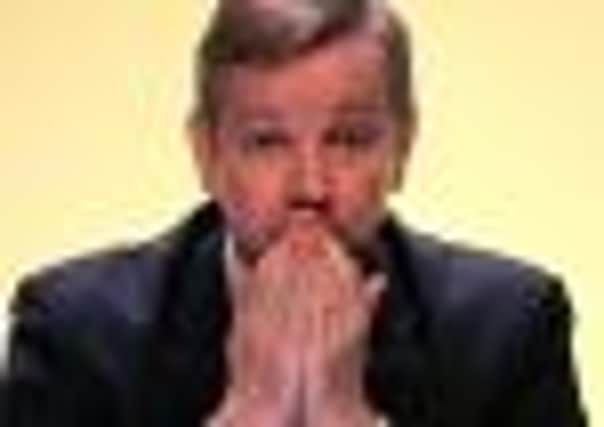Education facing up to ‘worst cuts since the 1950s’


The report by the Institute of Fiscal Studies (IFS) says public spending on education in the UK is set to fall by more than 13 per cent in real terms by 2014-15.
After the largest increases in education spending since the 1970s under the previous Labour government, the IFS report said the next four years would see state spending drop by up to 3.5 per cent a year.
Advertisement
Hide AdAdvertisement
Hide AdAn IFS spokesman said the figures represent the largest cut in education spending over any four-year period since the 1950s.
Tory Education Secretary Michael Gove defended the spending plans but senior Labour politicians in Leeds and Sheffield warned the level of cuts could damage the prospects of many young people.
The IFS said the cuts would be deepest for higher education, due to reduce by 40 per cent, and capital spending, which will be more than halved.
Current spending on schools will see the smallest real terms cut of about one per cent, but areas among the hardest hit are education for 16- to 19-year-olds and for “early years”– nursery pupils and playgroups, which will both see cuts of around 20 per cent.
Advertisement
Hide AdAdvertisement
Hide AdThe Government’s pupil premium will add to the additional money provided for the poorest pupils and schools in deprived areas will see “real-term” increases in funding. However, the majority of schools will see cuts, the IFS said.
The senior research economist at the IFS, Luke Sibieta, said: “Of course the key question is what these cuts in financial resources will mean for the outputs of the education system, such as young people’s exam results or earnings potential.”
But Mr Gove said: “Spending in schools is staying the same and poorer schools in poorer areas are receiving more money, or we’re giving them more cash to spend on the poorest students.”
He said the figures in the report were a result of Government policy to ask students – who will be required to fund tuition fees of up to £9,000 a year – to pay more for themselves. “It’s a shift in the burden from other taxpayers to students who will benefit from their degree,” he added.
Advertisement
Hide AdAdvertisement
Hide AdMr Gove went on to describe the statistics for spending cuts for nursery pupils and playgroups as “perplexing”. He said: “One of the things that we are doing is putting more money into ensuring that parents of children have 15 free hours of pre-school learning.”
Sheffield Council’s Labour leader Julie Dore described the cuts as “shocking”.
She added: “I am particularly worried about the impact that cuts to post-16 education will have. When we currently have record levels of youth unemployment, making cuts to EMA (Education Maintenance Allowance) and the Future Jobs Fund and trebling tuition fees is making the problem a lot worse.”
“Locally Labour are taking action to give young people opportunities through our apprenticeship programme, however, we need the Government to do much more to prevent our young people being lost to unemployment.”
Advertisement
Hide AdAdvertisement
Hide AdLeeds Council’s Labour deputy leader and executive member for children services, Judith Blake, said: “This reinforces my concern that the cuts are going to have an extremely damaging impact on the life chances of young people.
“This report lays bare the fact that the Government’s plans to cut education spending risk seriously limiting opportunities for young people to build themselves a brighter future.”